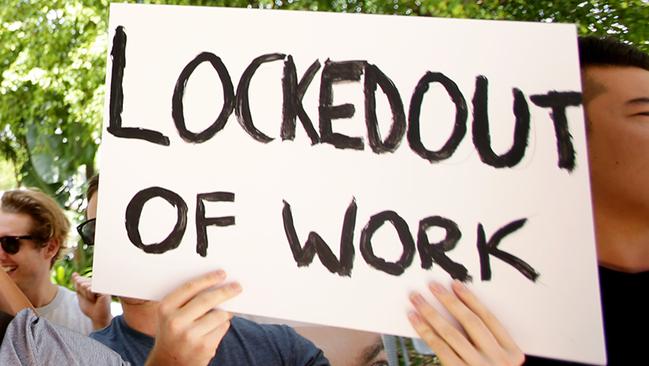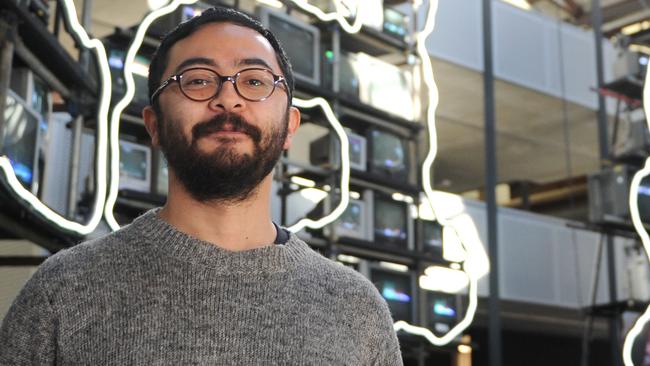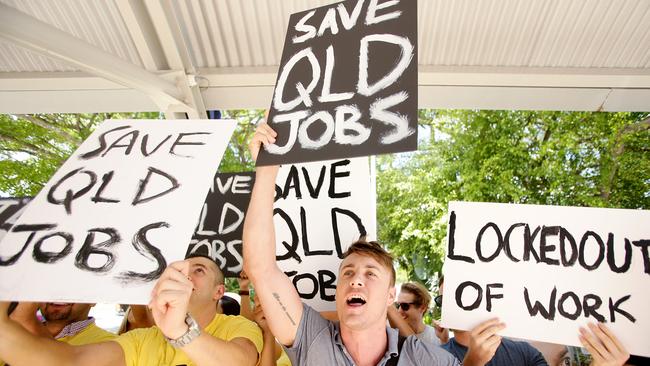10,000 expected at protest against Sydney lockout laws
THOUSANDS are expected to march against a controversial policy the NSW Premier could easily fix.

THE organiser of a protest planned for Sunday against the NSW Government’s lockout laws says Premier Mike Baird has badly “misjudged” public opposition to the controversial regulations.
But he concedes a complete axing of the regulations, at least in one go, is probably unrealistic.
Around 10,000 people are expected to attend the rally on Sunday, to be held in Belmore Park opposite Sydney’s Central train station, organised by protest group Keep Sydney Open.
The public display of anger comes in the same week the Queensland Government narrowly passed its lockout laws which will see last drinks called in the sunshine state at 3am in nightclub precincts and 2am elsewhere from July.
TV producer and DJ Tyson Koh from the Keep Sydney Open campaign, which is backed by a number of music festivals and music venues, said he had a personal reason for taking up the fight against lockouts.
“I used to organise a music night at the Flinders Hotel in Darlinghurst but then that venue closed due to the lockouts which was a shame because a lot of people really loved it,” he told news.com.au.
“I’m constantly in contact with people working in the music industry who complain about how there are now less people going out and less venues to play out at and that’s propelled me to action.”

STUNNED
Mr Koh said the campaign was set up to draw attention to threats against the city’s night-life.
“We foresaw that there would be a negative impact upon the live music scene; flash forward and now we know that’s absolutely true,” he said.
“I think people are finally starting to see the negative impact on our city and people are questioning if a curfew really is the best way to tackle violence and anti-social behaviour.”
The lockout net was so wide, he said, venues which hosted gigs, trivia nights and even poetry slams were closing down. As venues closed, jobs were also lost.
However, Mr Koh didn’t deny that violent attacks had gone down in trouble hot spots such as Kings Cross or that there were public concerns about one-punch deaths on the strip.
“I think people were initially stunned with the tragic incidents that happened in the Cross but since then more and more evidence, both about violence migrating to other areas and the impact on well run businesses, has led people to question whether lockouts actually address violence.
“It’s not whether we want to reduce the amount of assaults, of course we do — we’re the ones who go out and we’re want to be kept safe.
“But if there are methods available to reduce assaults and emergency presentations then we have a responsibility to pursue them over measures that only take into account one piece of the puzzle at the expense of all others.”

SIMPSON DESERT
Just as the Labor Government in Queensland has been building support for lockouts, the consensus in Coalition ranks has seemingly started to fray. Last week, a group of Nationals MPs questioned the effect of a blanket ban on bottle shops opening after 10pm in rural communities given, in summer time, some farmers might not leave the land until late in the evening.
While on Monday’s Q&A, Federal Trade and Investment Minister Steve Ciobo said Australia was becoming a nanny state.
“I know Premier Mike Baird has said assaults are down 44 per cent [but] does that sit with the way in which patronage is down? I heard someone quip there were zero assaults in the Simpson Desert too.”
Mr Koh said politicians were getting “wobbly” on the lockouts. “People are starting to see up to the disconnect between someone in a rural area not being able to buy a bottle of wine and violent events occurring hundreds of kilometres always within an inner city precinct.
“Mike Baird has misjudged this and I think he’d be wise to consult a broader range of stakeholders moving forward.”
Round the clock transport, similar to what has been introduced in Melbourne, would help cut anti-social behaviour, he said, as would a heightened police presence and encouraging shops and restaurants to open later in the evening to provide more diversity after dark.

WIN-WIN
The group’s aim was to axe the regulations completely but Mr Koh recognised that might be a bridge too far. “First and foremost we need the compete removal of the 1.30am lockouts and the next step would be to link venues and their safety record with their opening hours.
“Currently, we have a situation where a lot of really well run venues can only open until midnight while unfriendly unstimulating pokie barns are allowed to trade to 6am or 24 hours.
“Our Government has its priorities wrong and we need to reward venues that are run well and punish those that aren’t.”
In his now infamous Facebook post from earlier this month, Mr Baird said the reduction in assaults vindicated the lockouts and it would “take a lot for me to change my mind on a policy that is so clearly improving this city.” It’s a position backed by much of the healthcare community who say 1.30am lockouts are a small price to pay for fewer injuries.
Mr Baird has since said an upcoming review would listen to all sides of the debate and the outcome was not predetermined.
There had to be a middle way, said Mr Koh.
“We’re going to have thousands marching against the lockouts and we’re demanding our government works harder to implement solutions that result in a win-win outcome,” he said.
“There’s no reason we can’t have a vibrant night-life and safety on our streets.”




